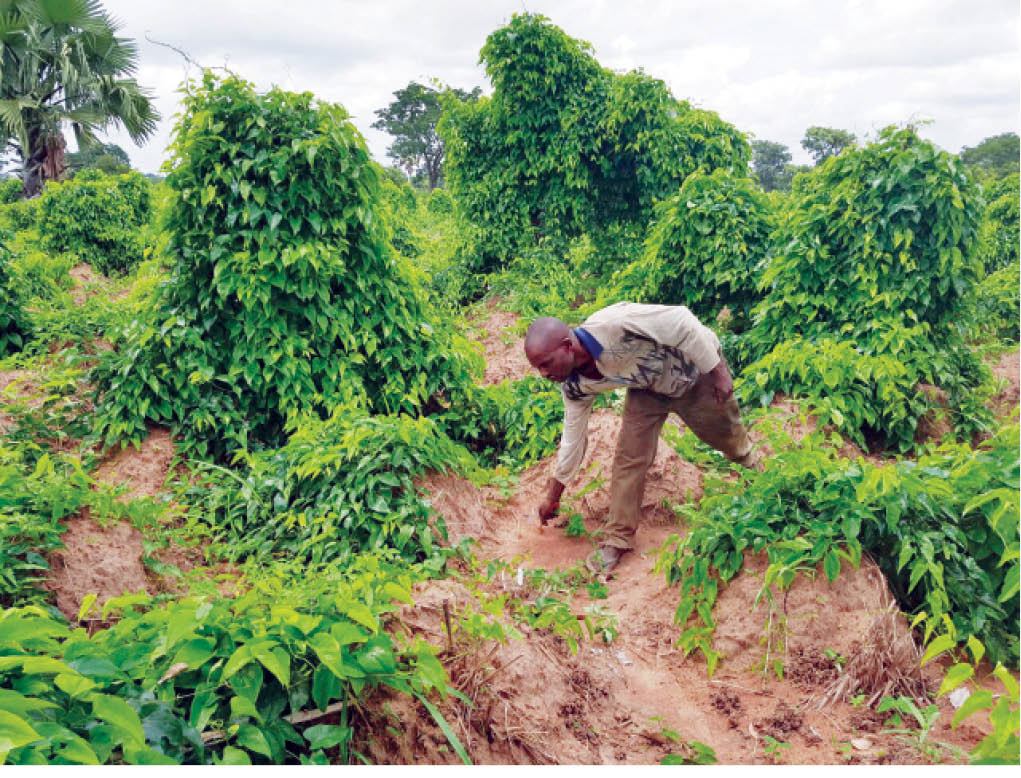Food wastage is a common phenomenon, especially in markets, parks, streets, dumpsites and farmlands.
Despite the huge outcry over hunger, many people are fond of disposing of food produce, be they grains, fruits, vegetables or other crops, when they no longer have need for them. It is common to see heaps of food, raw or cooked, on the streets, farms, markets and parks. The heaps usually come with a stench which not only affects the aesthetic of the environment, but also pollutes the air when they rot.
According to the World Bank in a report, Nigeria loses and wastes 40 per cent of its total food production every year. This loss accounts for 31 per cent of the country’s total land use and for five per cent of its greenhouse gas emissions.
In the report, tagged: “Nigeria Food Smart Country Diagnostic, the World Bank said the losses represented 9.1 per cent of Nigeria’s GDP, and at the same time that 44 per cent of Nigerians were food insecure and the population was estimated to increase by more than 50 per cent in 2050.
Only Armed Forces, Police are allowed to use camouflage uniforms – FG
How FG’s legal manual seeks accountability for abused school children
It noted that food waste, spoilage and loss which accounted for about 40 per cent of all food produced led to a slew of additional issues such as poverty, environmental degradation and life-threatening diseases that unleashed a high economic burden on the country.
While the world is battling to salvage the environment from the devastating effects of climate change, many people continue to engage in activities that affect the environment and deepen the effects of the phenomenon. One of such activities that many engage in but are ignorant of is food wastage and dumping.
According to experts, throwing away uneaten food may appear like a meagre damage to the planet when compared to other issues, but the reality is that it is just as harmful.
They said, “When we waste food, we also waste the precious resources that went into producing the food. This includes the use of land and natural resources, the social cost to the environment and our biodiversity. Food waste accounts for one-third of all human-caused greenhouse gas emissions and generates eight per cent of greenhouse gases annually. With these statistics in place, there is a huge need to reduce this environmental footprint.”
How food wastage contributes to climate change
According to the experts, when food is left to rot in landfills, it subsequently releases methane, a powerful greenhouse gas 25 times stronger than carbon dioxide, and when methane is released, it lingers for 12 years and traps heat from the sun.
They said it contributed towards 20 per cent of the global greenhouse gas emissions released and that when we factored in the greenhouse gas emissions released from the use of natural resources, the contribution to climate change was astonishing.
Professor Nasiru Medugu Idris of the Nasarawa State University, Keffi, said food wastage in the form of solid waste contributed directly to greenhouse gas emissions through the generation of methane from the anaerobic decay of waste in landfills.
He also said it was the emission of nitrous oxide from solid waste combustion facilities that contributed to the destruction of the ozone layer, thus leading to climate change.
He further said, “Food is grown and processed, transported, distributed, prepared, consumed, and sometimes disposed of. Each of these steps create greenhouse gases that trap the sun’s heat and contribute to climate change.”
For the Interim Executive Secretary of the Pan African Network for the Conservation of Africa’s Natural Resources (PANCANR), Almami Dampha, the food and climate change nexus is that the more food that we waste, the more food we have to grow to keep food on the table on a continuous basis.
He explained that, “This would mean clearing more land and using more water for growing crops or rearing animals. Clearing more land would lead to deforestation and land degradation. Deforestation and land degradation are major contributors to carbon emission, which is a major driver of climate change.”
How to address food wastage
The experts noted that if a decent food waste treatment system was implemented it would stop 11 per cent of global greenhouse gas emissions, and that if people stopped throwing food away, it could save the equivalent of 17 metric tonnes of CO2, which can be the environmental equivalent of five cars off the roads.
According to the World Bank report, reducing food loss and waste provides immediate impact for the poorest and most vulnerable, maximising output from land and natural resources already under production.
The report reads in part: “A reduction in losses and waste, which currently stand at around 40 per cent of all food produced, increases food availability in regions where it’s grown and most needed and can enable the ability to diversify diets to a more nutritious one. Nigeria would effectively increase productivity without a trade-off between other policy objectives such as land conversion.”
It also said, “Lowering losses on and near the farm would also provide a buffer against the impacts of climate change.”
Prof Idris suggested that food wastage could be reduced through more efficient food transport and distribution systems and that it needed sustainable consumption and closing the cycle by reducing what ended up in the landfills.
He explained that, “Waste is not regulated by the government; that is based on individual and farmer or producer. Transportation systems for movement of perishable goods is also the farmers’ responsibility. The expansion of rail lines will ultimately provide a more efficient system that will ultimately reduce wastage for perishables.’’
While noting that climate change activities in Nigeria for now were still at advocacy stage, he said it was because of inconsistencies in the policy of government on who should do what was still not clearly stated.
He also noted that climate change activities at the subnational levels were not encouraging, saying the government at all levels needed to do more in this aspect.
For Mr Dampha, addressing the issue of food wastage is relevant to SDG 12 to ensure sustainable consumption and production.
He said, “We need to make sure that our consumption and production patterns are sustainable, meaning, we do not further deplete the natural resources of the planet and this is essential for the future of our planet.
“Certainly, the climate change threat deserves far more seriousness, urgency and commitment at the global level than presently accorded to it.
“There’s not enough political will to address climate change holistically. Finance and technology are lacking in developing countries that are suffering the most from climate change. However, some significant progress has been registered with regard to the climate change negotiations. Now, almost everyone has agreed on the need to address climate change. When, how, by whom and the scale are the issues of discussion.”




